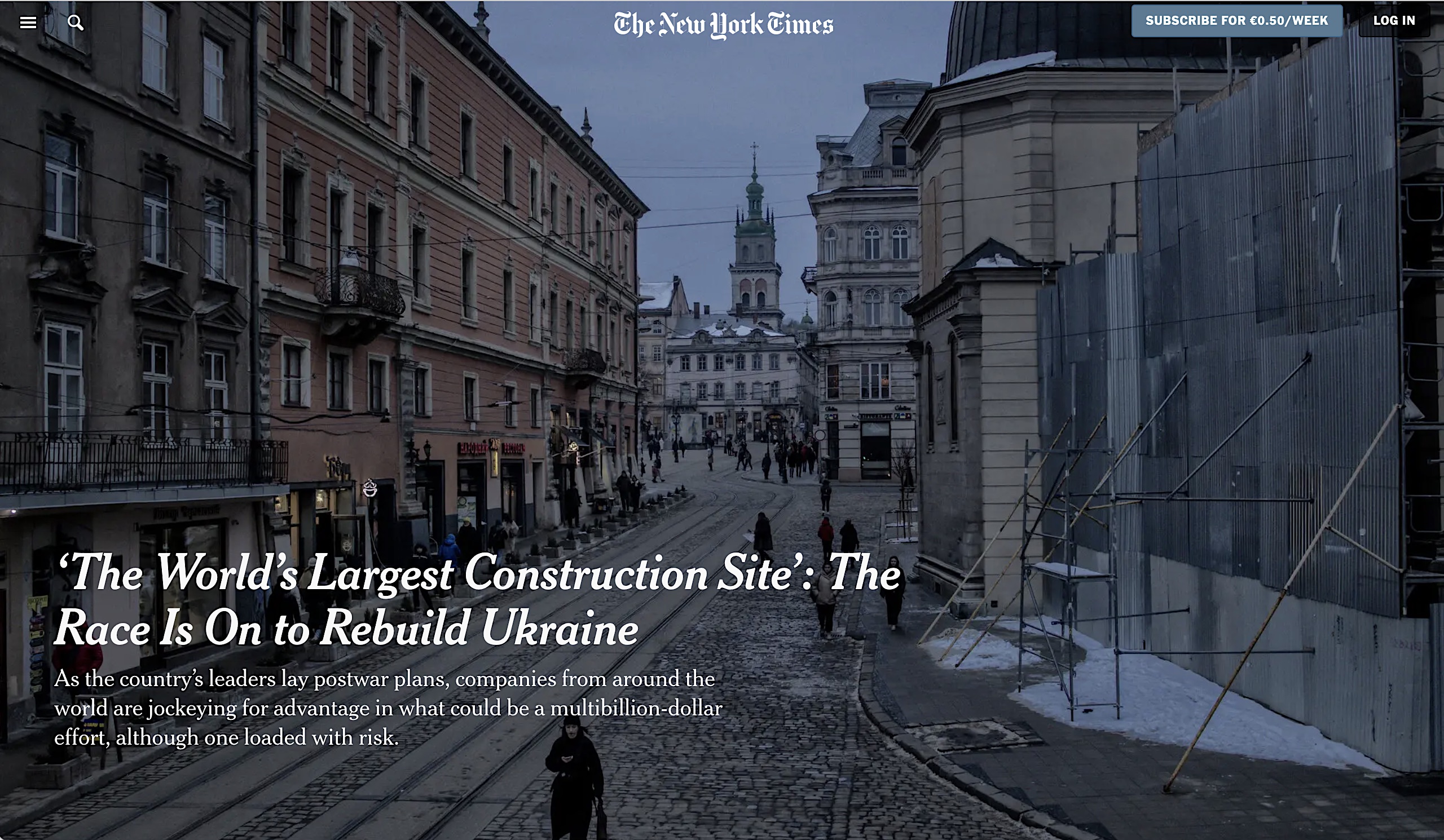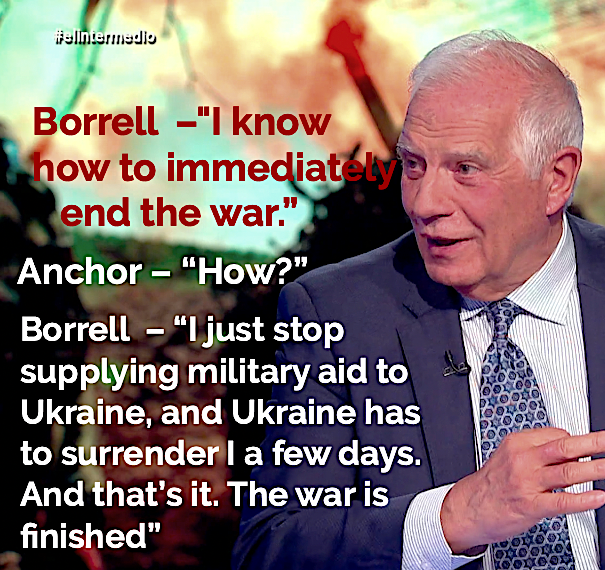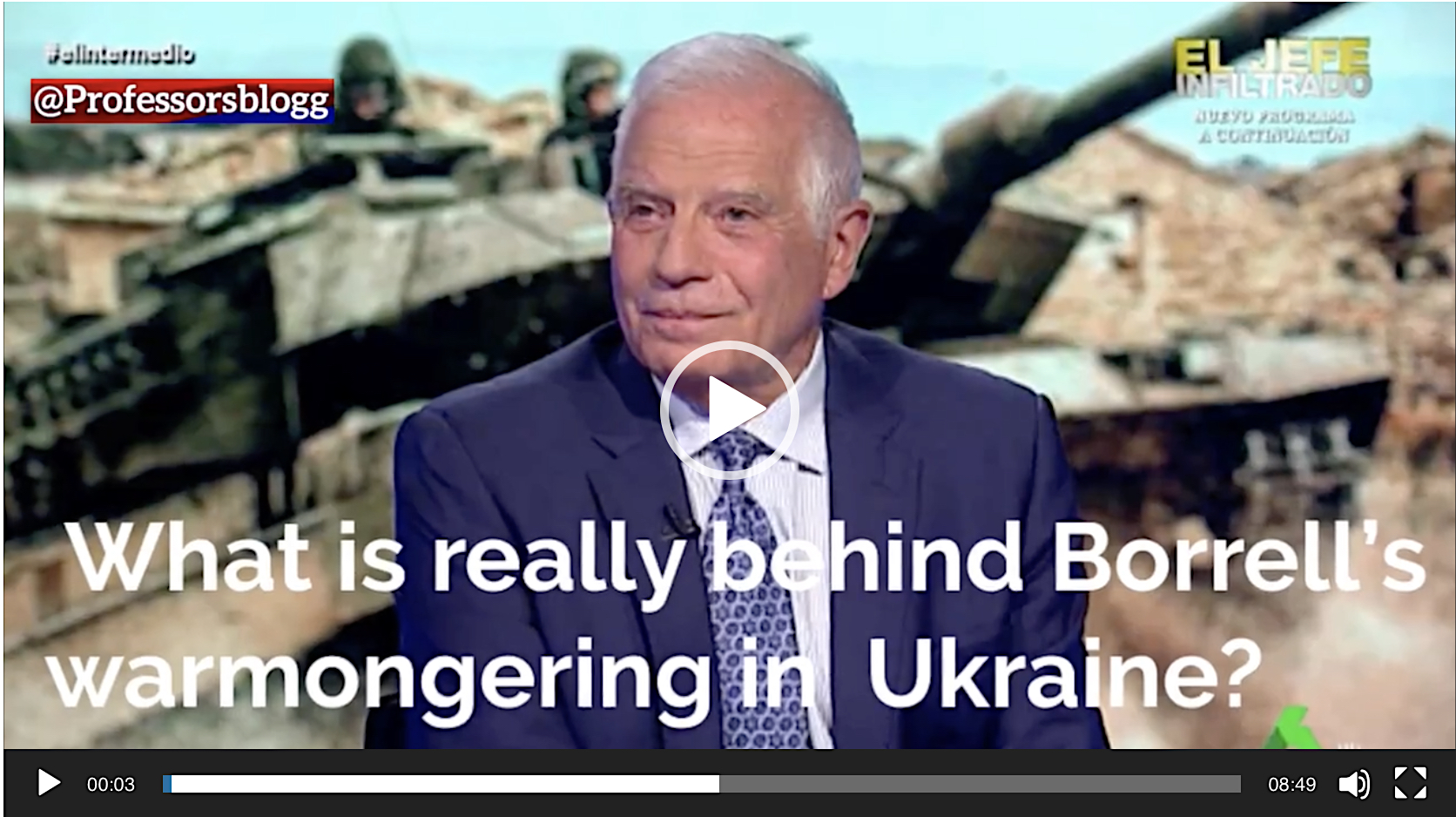West Corporate Profits Behind EU-Borrell’s Warmongering Strategy in Ukraine?
By Prof Marcello Ferrada de Noli
Economist Josep Borrell “diplomatic” behaviour represents for many –including outspoken EU’s MPs– a major European disgrace. His adventurous EU strategy is a further menace for world peace. It also endangers the relations between the EU and Africa, and other countries in the so-called Third World –the jungles outside the perimeter of his racist “garden”.
My main theses:
1) Josep Borrell opposing peace in Ukraine (stop sending arms there will immediately result in peace, he said) strategically aims to protract the war, thus increasing the destruction of the country.
2) The more shall be destroyed by the war, ergo the more shall need to be rebuilt, reconstructed.
3) Profit-beneficiaries of such vast reconstruction endeavour shall ultimately be West private enterprises (“Welcome to The World’s Largest Construction Site”).
4) Increasing Russophobe sentiment –another task proactively led by Borrell (in command of a European diplomatic team including Ukraine)– would enhance public approval to frozen Russian assets to be used in financing the rebuilding of Ukraine –for ultimate profit of corporate west.
5) The final coup of West states & corporate profit in Ukraine, as beneficiaries of Borrell design, is the collecting of the debt –particularly the increasing interest rates– which will result of the enormous investments in the reconstructions of the buildings, sites and infrastructure destroyed by the war. Note: Meaning, destroyed by the protracted war that Borrel advocates, and which entails increasing investment needs –ergo, increasing debts Ukraine shall repay. And there are several ways to repay. Further political submission is only one of them.
6) For the execution of all the above Borrell needs an instrument, a legal mandate. He needs a plenipotentiary tool. This is the reason why he recently called for the suspension of the veto right by the EU country members, in matters of foreign policy.
7) “Foreign policy” in the view of Borrell and the EU cupola he administrates, is not just that “foreign policy”, as classically understood, to be applied within diplomatic spheres. Not at all. For Borrell, foreign policy is chiefly materialized by a military policy. And this military policy would, albeit not necessarily, coincide with the strategics of NATO. He may show certain disagreement with NATO General Secretary Jens Stoltenberg, but because NATO’s real strategy obeys political ends, and the patron of that is corporate America, Borrell is the one to know the line best.
In that sense, Borrell appears a most prominent exponent of one of Von Clausewitz thesis, “War is the continuation of politics by other means”.
8) Another catastrophic geopolitical consequence of Borrell’s pro-Ukraine activities, essentiality in favour of West economic interests:
His advocacy for prioritizing the channelling of EU’s financial and humanitarian help to Ukraine –besides the enormous expenditures represented by the weapons supplies– it threatens to drastically deteriorate the aid that EU traditionally diverted to countries in Africa and other poorer countries, formerly colonies of European states.
In a series of statements, some of them interpreted particularly in African societies as plain racist, EU’s chief diplomat Jodep Borrell has used most offensive remarks in trying to justify that de-prioritization of EU’s funds with regard to those countries.
9) Strategically, the foreign policy inferred from Borrel’s “diplomatic” behaviour, is the active implementation of a geopolitics of expansion on the benefit of economic neo-colonialism and political neofascism.

You may also like
-
Should the EU’s DSA Ban Google from Silencing Gaza Genocide Voices? I Doubt It Shields Truth
-
An Essay on EU’s DSA Censorship on Freedom of Speech
-
The melodramatic European summit in London on Ukraine, and the consequences it will not have
-
“The European Union leadership is a club of losers”
-
Debunking U.S. Secretary Blinken’s and German Foreign Minister Baerbock’s statements on Ukraine presidential elections

